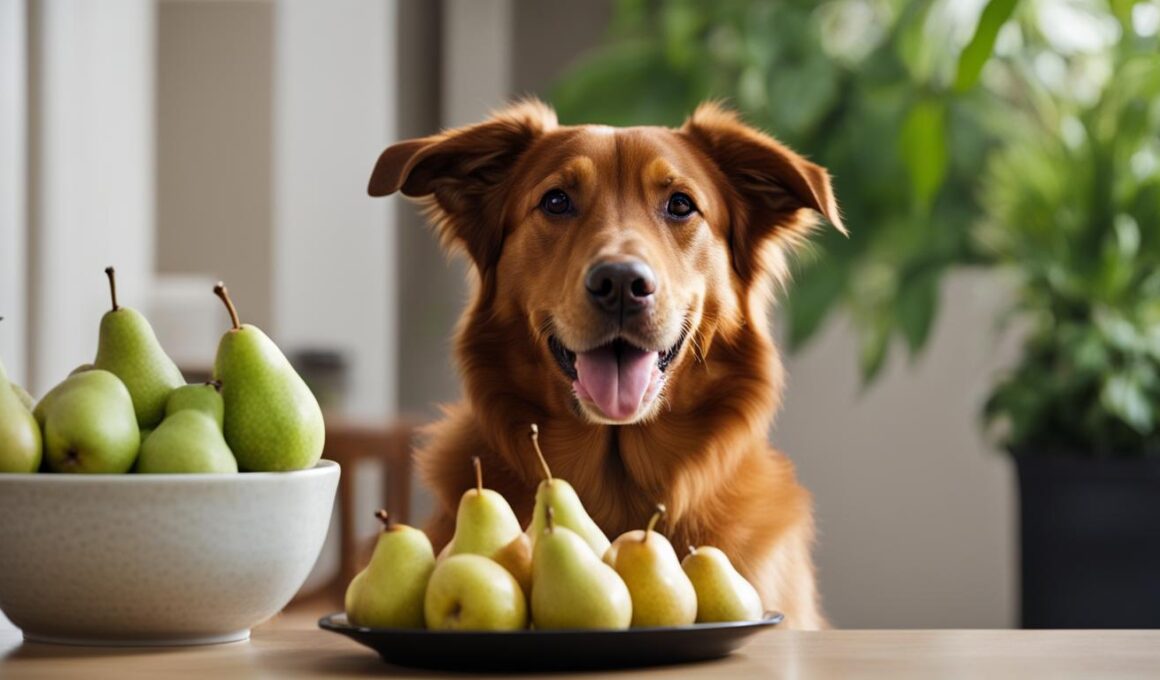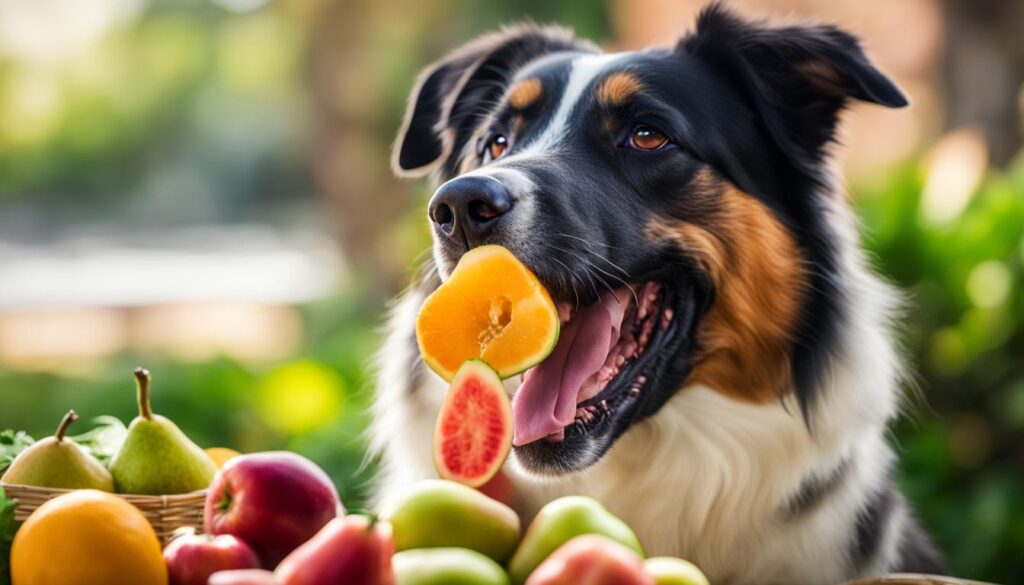Are you wondering if Korean pears are safe for your furry friend? Let’s explore whether dogs can eat pears and the potential risks associated with feeding them to our canine companions.
Feeding pears to dogs can be a healthy treat option. Pears are packed with essential nutrients like vitamin C, vitamin A, and fiber, making them a nutritious snack for dogs. However, it’s important to remember that moderation is key.
While pears offer several health benefits, overindulging in this sweet fruit can lead to digestive issues in dogs. Veterinarians suggest limiting treats to no more than 10% of a dog’s daily food intake to maintain a balanced diet. This guideline helps prevent any potential stomach upset or discomfort.
Another crucial aspect to keep in mind is the preparation of pears for dogs. To avoid any choking hazards, always remove the stem, seeds, and core before offering pears to your dog. Cut the fruit into bite-sized pieces, ensuring they are easy to chew and swallow.
It’s important to note that pear seeds contain traces of cyanide and should never be given to dogs. These toxic components can be harmful if ingested. Additionally, canned pears are not advisable due to their high sugar content, which can upset your dog’s digestive system.
Before introducing pears into your dog’s diet, consulting with a veterinarian is always recommended. They can provide personalized advice based on your dog’s specific needs and help ensure their safety and well-being.
In conclusion, while Korean pears can be a healthy snack for dogs, it’s crucial to feed them in moderation, remove the seeds, and consult your veterinarian. By following these precautions, you can safely enjoy sharing this delicious fruit with your furry companion.
Benefits of Feeding Pears to Dogs
Feeding pears to dogs can provide several benefits. Pears are a nutritious and delicious fruit that can be a healthy addition to your dog’s diet. Here are some of the key advantages of incorporating pears into your pet’s meals:
- Nutrient-rich: Pears are packed with essential vitamins and minerals, making them a great source of nutrients for your dog. They are rich in vitamin C, which provides immune support and acts as an energy source. Pears also contain vitamin K, which aids in blood health, and copper, which is important for maintaining healthy blood cells, skin, and coat.
- Fiber for digestion: Pears are high in fiber, which promotes a healthy digestive system in dogs. The fiber content helps regulate bowel movements and prevents constipation. Additionally, it helps dogs feel full, which can be beneficial for weight management and preventing overeating.
- Hydration: Pears have a high water content, which can help keep your dog hydrated. Adequate hydration is essential for overall health and can prevent issues such as urinary tract problems and kidney disease.
- Versatile treat: While pears should not replace a balanced diet, they can be a tasty and nutritious treat for your furry friend. Whether you choose to serve them fresh, frozen, or blended into homemade dog treats, pears can add variety to your dog’s snacking options.
Remember, when introducing pears to your dog’s diet, it’s important to do so gradually. Start with small amounts and monitor your dog for any signs of gastrointestinal upset. If your dog has any underlying health conditions or dietary restrictions, it’s always best to consult with your veterinarian before making any changes to their diet.
Precautions for Feeding Pears to Dogs
While pears are generally safe for dogs to eat, it is important to take certain precautions to ensure their well-being. First and foremost, remember that pear cores can pose a choking hazard. To prevent any accidents, always remove the stem and seeds before feeding pears to your furry friend. Additionally, it is crucial to cut the fruit into small, bite-sized pieces that are easy for your dog to chew and swallow.
Another important consideration is the toxic nature of pear seeds. These seeds contain traces of cyanide and should never be consumed by dogs. To keep your pet safe, make sure to thoroughly remove all seeds from the pears and discard them.
Feeding pears to dogs should be done in moderation. While pears can be a healthy and tasty treat, excessive consumption can lead to digestive upset. To avoid any discomfort, it is recommended to limit the serving size of pears to 10% of your dog’s daily food intake.
Before introducing pears or any new food to your dog’s diet, it is always best to consult with a veterinarian. They can provide guidance on the appropriate amount of pears to feed your dog based on their specific needs and help ensure their safety. Your veterinarian will consider factors such as your dog’s size, age, and any existing health conditions to provide tailored advice for your furry companion.
Can Korean Pears Be Harmful to Dogs in the Same Way Pansies Are to Cats?
Korean pears are not harmful to dogs in the same way pansies are to cats. While pansies are toxic to cats, Korean pears are safe for dogs to consume in moderation. It’s always best to check with a veterinarian before introducing new foods into your pet’s diet.










